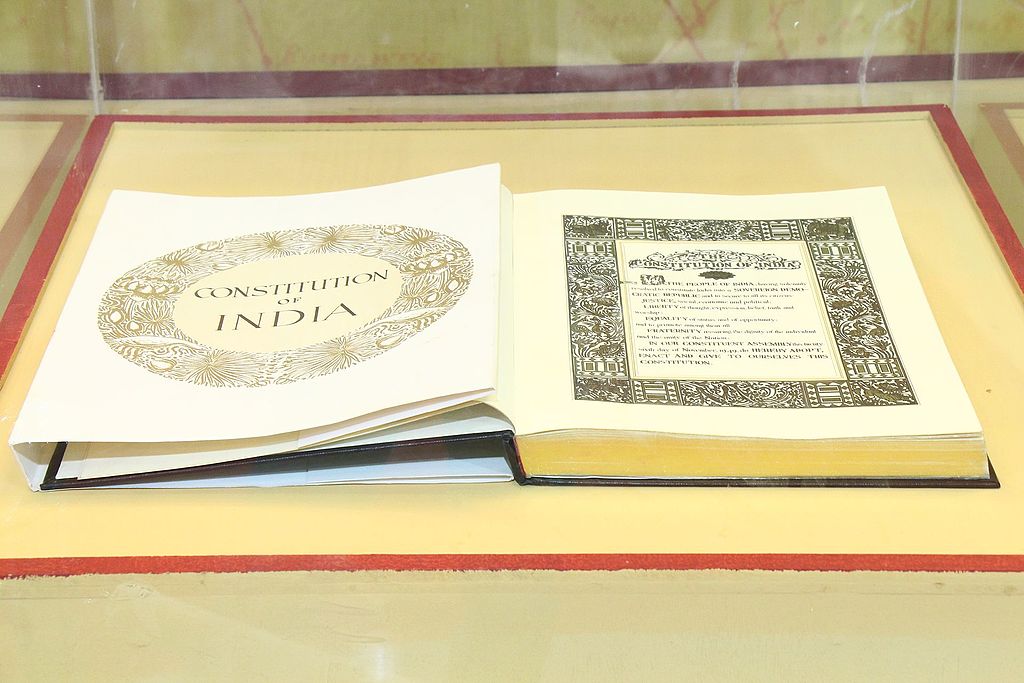INTRODUCTION
Our country consists of three sets of organs, namely: the legislative, executive and judiciary. The role of the legislative is to make laws and the role of the executive is to ensure that these laws are implemented. When we talk about the judiciary, they make sure that all these functions are discharged within the ambit of the constitution that was framed years back. The founders of our constitution have tried to make out constitution as clear as possible by ensuring there is no space for ambiguities, making it the lengthiest constitution in the world. Hence to ensure that this is being followed at the central level too, the president appoints an attorney general for the country who acts as a legal advisor and is the primary lawyer in the supreme court of India. He/she is a person who represents the government whenever there is any proceeding against the government which generally arises during a criminal proceeding as it is deemed to be an act done against the state.
The Office of the Attorney General for India was established by the Constitution for the first time, although the Government of India Act of 1935 had created an office similar to it in all but the term, namely that of the Federation’s Advocate General.12 It was not the intention of the Act that the Office of the Advocate General should be based on the law officers in the United Kingdom. This can be further understood by analyzing the history of the post
HISTORY
Draft Article 63 (Article 76 of the Constitution of India, 1950) was debated on 7th January 1949. This report governed the Indian attorney general’s office.
A lawmaker introduced an amendment that would allow the Attorney General to withdraw upon the Prime Minister’s departure. He argued that the Constitution mandated the state attorney general to resign upon the resignation of the chief minister. Therefore a comparable arrangement for the Attorney-General was required. He argued that, in the Constitution, the Attorney General and the Advocate General must have the same footing. England also had an analogous precedent.
There was another idea that would limit the Attorney General’s remuneration to the laws enacted by Congress, rather than the Executive. This would guarantee a regular salary which is not open to the President’s decision.
Neither of these proposals was approved by the Senate. This accepted the Draft Article on 7 January 1949, without any modifications.
ELIGIBILITY
The person to be appointed as Attorney General must be qualified to be a judge of the Supreme Court. Thus a person shall not be appointed as Attorney General of India unless he is a citizen of India and,
· He must have been a jurist
· judge of one or more High Court for five years. Or
· He has been practiced in one or more High Court for at least ten years. Or
· He is an eminent jurist in the opinion of the President.
POWERS AND FUNCTIONS
It was said in R.K Jain VS office of attorney general of India that “…the role of the AGI is not limited to merely acting as a lawyer for the Government of India…the AGI is a constitutional functionary and is also obliged to discharge the functions under the Constitution as well as under any other law,” which brings us further down to understanding the various powers and functions that are vested in the attorney general of India.
The Attorney General is mandatory for advising on legal matters referred to him to the Government of India.
He also performs certain legal duties that the President assigns to him. The Attorney General has the right of audience in all Indian courts, as well as the right to participate in Parliament’s proceedings, although not to vote.
In all cases (including suits, appeals, and other proceedings) the Attorney General appears in the Supreme Court, in which the Government of India is concerned, on behalf of the Government of India. In any reference made by the President to the Supreme Court under Article 143 of the Constitution, he also represents the Government of India.
Unlike the United States Attorney General, the Indian attorney general has no executive authority. Those functions are carried out by India’s law minister. He is also not a servant of the government and is not debarred from private law practice.
The Attorney General may accept briefs but is unable to appear against the State. He can not protect an accused in criminal proceedings and recognize a company’s management without the government’s permission.
The Attorney General is assisted by a General Solicitor and four additional General Solicitors. The Attorney General is only to be consulted in legal matters of real importance and only after consultation of the Ministry of Law. The Ministry of Law shall render all referrals to the attorney general
DUTIES OF ATTORNEY GENERAL concerning ARTICLE 76.
As a chief law officer:
1) Provides advice to the Government of India upon legal matters which are referred to him by the President.
2) To perform the duties of a legal character that are assigned to him by the President.
3) To discharge the functions conferred on him by the Constitution or any other law.
Following duties are assigned to him by the President :
1) Appears on behalf of the Government of India in all cases in the Supreme Court in which the Government of India is concerned.
2) Represent the Government of India in any reference made by the President to the Supreme Court under Article 143 of the Constitution.
3) Appear (when required by the Government of India) in any high court in any case in which the Government of India is concerned.
LIMITATIONS OF OFFICE OF ATTORNEY GENERAL
1) Should not advise or hold a brief against the Government of India.
2) Should not advise or hold a brief in cases in which he is called upon to advise or appear for the Government of India.
3) Should not defend accused persons in criminal prosecutions without the permission of the Government of India.
4) Should not accept appointment as a director in any company or corporation without the permission of the Government of India.
COMPARATIVE ANALYSIS OF ATTORNEY GENERAL OF VARIOUS COUNTRIES
Before drafting India’s constitution, the creators of our constitution before they already had some of the world’s model constitutional frameworks. The incorporation of the clauses involving legal counsel to the central government and governments of the state shows their innovative thinking. Although much inspired by the British Constitutional system and the English Attorney General’s office, they did not simply steal the notion. They didn’t want to make India’s Attorney General remain accountable to the House of Commons as a member of the cabinet. Had they understood and adopted some of the regulations relating to the Attorney General of the United Kingdom, such as his interference in the case of Public Nuisance, Compliance and Control of Charitable Trusts, and the cessation of the criminal process by entering a’ nolle prosequi.’ Under the Indian Convention, the concept of an official legal advisor for state governments as it was in vogue in most US states was not considered appropriate.
The French ‘ Parquet’ system headed by’ procurator’ or state attorney and other members not subject to removal has been deemed unfit for India.
Britain
In Britain, the appointment of the Attorney General is political in the sense that it is conferred on a successful barrister who is a supporter of the party in power. He has sometimes been a member of the cabinet though ” it is generally regarded as preferable that he should remain outside the cabinet as the government’s chief legal advisor.O Hood Philips observes: The better opinion is that the Attorney General should not be in the cabinet because of his quasi-judicial function with regards to prosecutions and also because it is desirable to separate the giving of advice from those who decide whether to act on the advice. Indeed it must be open to question given his unfettered discretion to refuse to initiate proceedings and his power to terminate criminal proceedings whether the appointment should be nonpolitical. According to the practice followed in India so far, the attorney general is appointed based on professional competence and not on political considerations. He is a non-party man is appointed because of his competence as a lawyer and he is not a member of the cabinet
United States of America (USA)
The Office of the Attorney General existed in the United States of America from the very beginning, but it was only in 1870 that a Justice Department was finally provided to handle the National Government’s increasingly large volume of legal business. A member of the President’s Cabinet is the Attorney General who is the head of the Department of Justice. Besides giving advice to the Chief Executive as a Cabin leader and usually overseeing the Department of. Justice, the Attorney General Heads, which is a division of the department charged with providing legal opinions on matters submitted to him by the President and the heads of the Executive.
France
The institution of Parquet or the’ Minister Public’ or men acting for the public weal is truly unique in France’s judicial system. A’ Parquet’ headed by a general state is attached to each court. Some assistants are also attached to it. The’ Parquet’ represents the state in court, which prosecutes. The’ Parquet’ leaders are irremovable in their hierarchy and pass upward. Their main business is in criminal cases, but they can also participate in civil cases that are of state interest. We see the execution of the decisions and the arbitrary decrees.
China
China is hierarchically closely based on the procuratorial structure in the former Soviet Union. At the center of the procuratorial structure is the Supreme People’s Procuratorate, empowered to exorcize procuratorial jurisdiction over all state council offices, all local state bodies, people entering into state institutions at all levels, and individuals to ensure compliance with the law. In short, this body has been tasked with the duty of ensuring that people and public officials fully obey the rules.
Conclusion
From the above discussion, it is clear that Indian constitutional makers were indebted to the British constitutional practices so far as the office of the Attorney General the above stated points gives us an understanding that in the constitutional systems of most of the liberal democracies the legal office of Attorney General holds great importance. It has been created for the purpose of smooth administration of justice on behalf of the Government. These officers are thought to be able to provide legal advice to heads of state, regions, government agencies and represent the government in legal proceedings. Under federal form of government, a state’s attorney general was expected to act as the state government’s legal adviser. Apart from protecting citizens ‘ interests, he may give approval in cases of public disturbance or in cases of better management of trusts established for charitable or religious purposes for himself or herself.

Shrishti Natani
AuthorShrishti is a passionate debater and a traveller. Her interest area revolves around human rights law and constitutional law and public policy. She hails from the Institute of Law, Nirma University. For any clarifications, feedback, and advice, you can reach us editor@lawcirca.com



